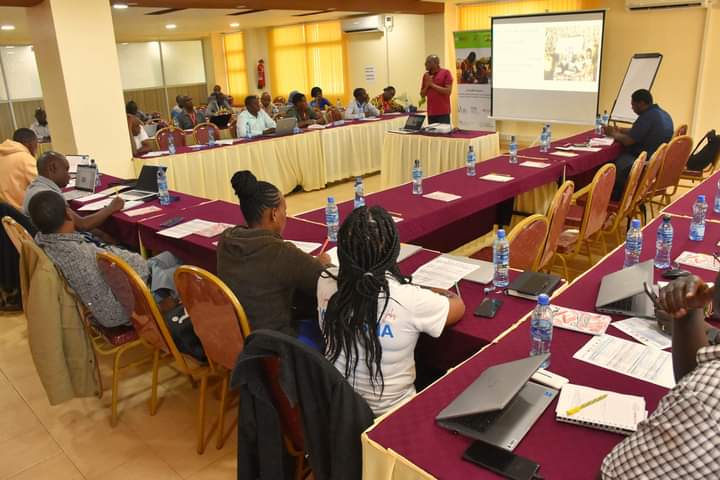Pastoralists urged to venture into gum and resins trade for increased income

Gums and resins remain high in demand and are among the most sought-after commodities used in the production of food products such as chewing gum and beverages.
Pastoralist communities in Isiolo have been urged to venture into the gum and resin trade for improved livelihoods and climate change adaptation.
County Natural Resources Chief Officer Antony Ewoi said to maximize benefit from the business, residents must shun tree felling for charcoal burning and conserve the indigenous gum and resin-producing trees that thrive well in arid and semi-arid conditions.
More To Read
- COP30 delivers mixed results on climate action, WEF experts say
- Managing conflict between baboons and people: what’s worked - and what hasn’t
- Kenya, Sweden partner to curb billions lost in post-harvest food waste
- UNEA-7 opens in Nairobi as global environmental diplomacy faces major challenges
- 2025 set for second-hottest year on record
- Nyeri climate change activist Truphena Muthoni attempts 72-hour tree-hugging record
The valuable products are exudates from stems and branches of the Acacia Senegal variety (Gum Arabica), Commiphora and Boswellia species (resins) which either form naturally or after small cuts on the tree barks. The older trees produce more gum and resins.
With pastoralism increasingly under threat due to climate change which results in massive death of livestock thereby impoverishing communities, additional income would build the communities' resilience to natural catastrophes and help eradicate poverty that remains rife in the region.
"We will provide gum and resin tappers with the appropriate harvesting gears, weighing machines, driers for aggregators and intervene on price control to prevent monopoly," Ewoi, who was accompanied by Trade counterpart Lucy Kaburu, said.
Gums and resins remain high in demand and are among the most sought-after commodities used in the production of food products such as chewing gum and beverages as well as perfumes and fragrances.
The Isiolo County government and USAID Nawiri days ago organised a three-day training for stakeholders and industry players from Isiolo, Turkana, Marsabit and Samburu counties on the best practices. Among the participants were collectors and buyers of Gum and Resin.
A call for the county government to link traders to favourable markets and weed out middlemen was made at the training.
Nawiri official Gabriel Mbokothe reiterated the organisation's commitment to supporting vulnerable groups, especially women through various initiatives geared towards enhancing their food and nutrition security.
"We were keen on training them on the business model to ensure they reap maximum benefits from the trade," Mbokothe said, adding that Nawiri will work closely with the devolved government to facilitate market access.
The sector's potential in Northern Kenya remains untapped due to a lack of policies and regulations to streamline operations which are majorly informal, exposing traders to exploitation by middlemen.
Other counties producing gums and resins are Mandera, Samburu, Marsabit, Wajir and Garissa.
A processing and value-addition factory built in Wajir by Ewaso Nyiro North Development Authority is yet to pick up.
Kenya is the third highest exporter of Myrrh, Hagar and Frankincense after Ethiopia and Somalia in the global Sh672 trillion trade according to ENNDA.
Top Stories Today














































